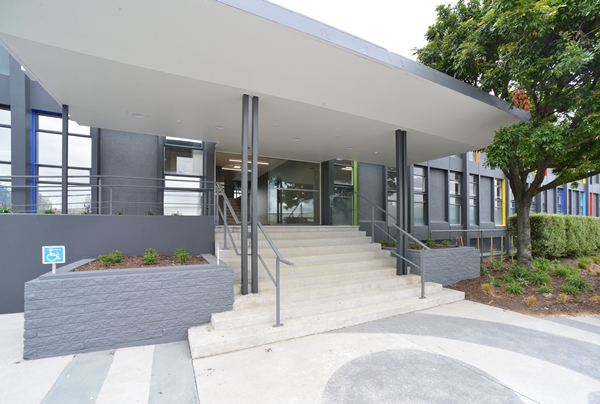 You own a business. You operate from rented premises. You work hard, take risks, take the bumps, and have a successful enterprise. Then it’s time to sell up and move on. Now, the big question – will you realise full value?
You own a business. You operate from rented premises. You work hard, take risks, take the bumps, and have a successful enterprise. Then it’s time to sell up and move on. Now, the big question – will you realise full value?
Possibly not. But a new East Tamaki business hub at 363 East Tamaki Road, could be the answer to realising full value if and when the time comes to sell your business. Here’s a ‘snapshot’ of how owning a floor at the new development shapes up against leasing:
• Lease: 222m2 x $230psm plus 8 car parks at $15 each pw = $57,300 pa
• Purchase: $850k at 4.5% interest only = $38,250 pa
CEO and founder of TPT Group, Mike Marr says owning a commercial property makes sense. “It provides flexibility and agility to your business and creates long term value, allowing business owners to create a significant property business.”
He adds that a convenient location is often vital to success. Combined with the other factors which generate goodwill, location can influence the inherent value of a business. Business owners who can’t transfer their premises to a new owner may find they can’t fully realise upon years of hard work.
Most commercial leases contain restrictions on assigning, sub-letting or transferring the leased premises to another party. This is usually necessary and reasonable from the perspective of landlords who obviously have the right to ensure any successor to a business, or to a lease, has a reasonable chance of keeping up the rent.
However, such restrictions can go beyond simply obtaining the reasonable consent of the landlord and, in rare cases, may allow for that consent to be withheld arbitrarily. Such additional restrictions can impede the sale of a business and deprive a business owner of its full value.
Determination of what is a reasonable basis for a landlord to withhold consent to the assignment, sub-letting or transfer of a lease is often dealt with specifically by the terms of the lease, but can also be a subject of dispute, delay and uncertainty. By the time final determination is made, the deal in question may be long gone.
Lease terms can be advantageous or a hindrance – a long lease commitment may sit on the wrong side of the balance sheet if potential new owners of your business don’t want to occupy the premises. Had you owned the premises, then the site could be sold separately at market rate, or tenants sourced to support an ongoing asset investment.
Advantages of owning premises:
• Fixed costs/no rent. Purchasing premises avoids exposure to increasing rent. In today’s market it’s possible to secure a fixed-rate mortgage loan with potential to refinance later at a lower rate to reduce total costs. When the mortgage is repaid, monthly occupation costs can be eliminated.
• Tax deductions. An owner can deduct depreciation and mortgage interest payments, which reduces tax liability. Repairs, maintenance, taxes and other costs can be written off. Improvements, may also qualify for depreciation tax advantages.
• Location. Owning offices provides a permanent location, delivering a location ‘brand’ to customers.
• Investment/capital gain. Over time the premises is likely to gain value, adding to the company’s capital valuation. That gain may be realised as income when the business is sold.
If keen to own business premises contact David on 021 908 888 to find out more about the new owner-occupier opportunity at 363 East Tamaki Road.
– Submitted by Gaze Corporation, Interior architecture and design consultants



